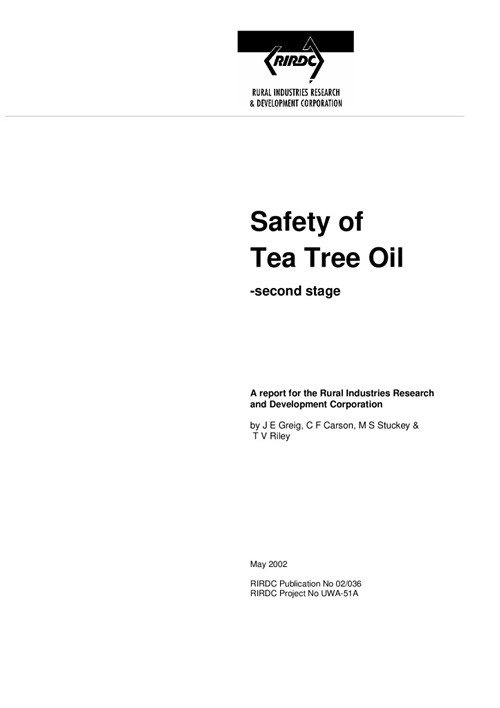AgriFutures Tea Tree Oil Program RD&E Snapshot
Message from the Research Manager, Stephen Taylor As we head into a new research, development and extension (RD&E) period for the AgriFutures Tea Tree Oil...
 TEA TREE OIL
TEA TREE OIL 
32 pages
Published: 1 May 2002
Author(s): Greig, J E, et al
Download report PDF
DownloadPurchase a hard copy - AUD $45.00
Tea tree (Melaleuca alternifolia) oil is still popular throughout Australia and in many countries around the world as a topical antiseptic. Evidence regarding many of the antimicrobial properties of the oil has been scientifically established, and recent published reports of clinical trial success have stimulated intense interest overseas. Markets are likely to expand as a result of such information being available. However, as more people use the product, the possibility of finding a user who has an adverse reaction also increases.
Until now, little safety information relating to the use of tea tree oil was available. The prevalence of sensitivity to tea tree oil in the general population was determined in a previous study. Further knowledge on causes of irritant and allergic reactions to tea tree oil is essential for confirmation of consumer safety and the value of the product. The aim of this project was to produce such safety information.
This publication describes follow-up work that determines some of the causes of delayed sensitivity to tea tree oil, including both irritant and allergic skin reactions. It also provides an indication as to which components of the oil might be responsible for such reactions and the reasons these components might arise in oil.